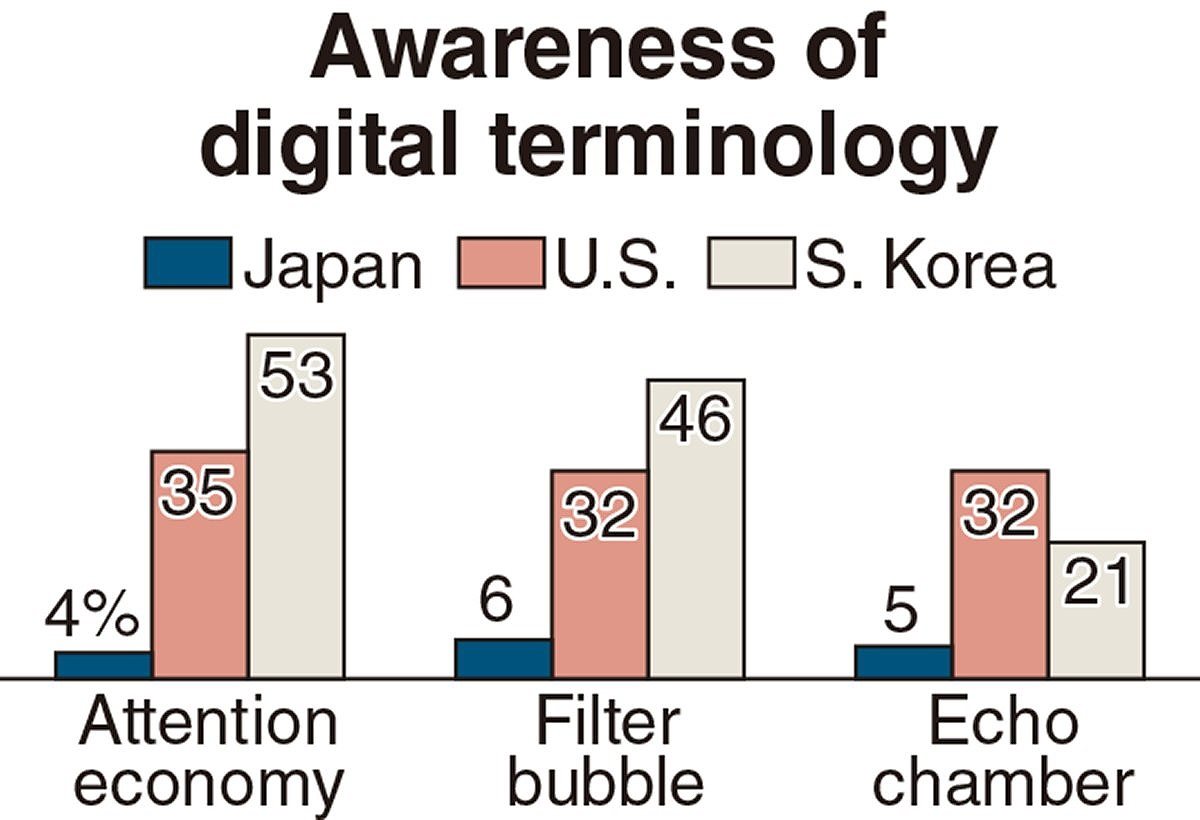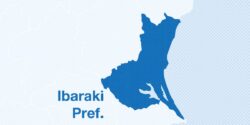Japanese People More Vulnerable to Disinformation Compared to Americans, South Koreans; Survey Finds 41% of Japanese Do Not Check Primary Source of Info

20:00 JST, March 26, 2024
Japanese people tend not to fact-check information found online and have less knowledge about how the internet works compared to Americans and South Koreans, according to a survey by The Yomiuri Shimbun.
The survey revealed that Japanese people tend to be easily deceived by false information.
The Yomiuri Shimbun conducted an online survey in mid-December with Shinichi Yamaguchi, an associate professor of economics at the International University of Japan. In each of the three countries, the survey asked 1,000 internet and social media users how they deal with digital information. The respondents were between the ages of 15 and 69 and were residents of rural and urban areas.
The questions were mostly made and analyzed by Yamaguchi, and the survey was outsourced to Tokyo research firm MyVoice Communications, Inc.
When asked if they check the primary source of information found online, 73% of respondents in the United States said they check it, with 57% in South Korea and 41% in Japan saying they do so.
The survey also found that only 54% of Japanese respondents check when the information was posted, while 74% of respondents in the United States and 73% in South Korea do so.
In addition, the survey looked at how well respondents recognized terms that describe the structure of digital spaces or its harmful effects. On average, only 5% of respondents in Japan were aware of three terms, including “attention economy,” in which click-through rates are prioritized over the accuracy of information, far below 33% in the United States and 40% in South Korea.
The survey asked respondents if 15 instances of disinformation that were widespread in each of the three countries were “correct,” “incorrect” or if they “didn’t know.” Only 27% of Japanese respondents were able to correctly identify they were disinformation, compared to 40% in the United States and 33% in South Korea.
Respondents likely to be deceived by disinformation were those who trust social media or who do not actively read news reports, according to the survey.
On the other hand, respondents who were less likely to be deceived by false information were those who read newspapers and who obtained a variety of information from multiple mediums. Newspaper readers were 5% more likely to notice false information than non-readers.
“The survey confirms that people in Japan are facing a serious situation because of a low resistance to disinformation,” said George Shishido, professor of constitutional law at the University of Tokyo. “Efforts to increase online literacy are urgently needed.”
Top Articles in Society
-

JAL, ANA Cancel Flights During 3-day Holiday Weekend due to Blizzard
-

Record-Breaking Snow Cripples Public Transport in Hokkaido; 7,000 People Stay Overnight at New Chitose Airport
-

Australian Woman Dies After Mishap on Ski Lift in Nagano Prefecture
-

Foreign Snowboarder in Serious Condition After Hanging in Midair from Chairlift in Nagano Prefecture
-

Train Services in Tokyo Resume Following Power Outage That Suspended Yamanote, Keihin-Tohoku Lines (Update 4)
JN ACCESS RANKING
-

Univ. in Japan, Tokyo-Based Startup to Develop Satellite for Disaster Prevention Measures, Bears
-

JAL, ANA Cancel Flights During 3-day Holiday Weekend due to Blizzard
-

China Confirmed to Be Operating Drilling Vessel Near Japan-China Median Line
-

China Eyes Rare Earth Foothold in Malaysia to Maintain Dominance, Counter Japan, U.S.
-

Japan Institute to Use Domestic Commercial Optical Lattice Clock to Set Japan Standard Time





















